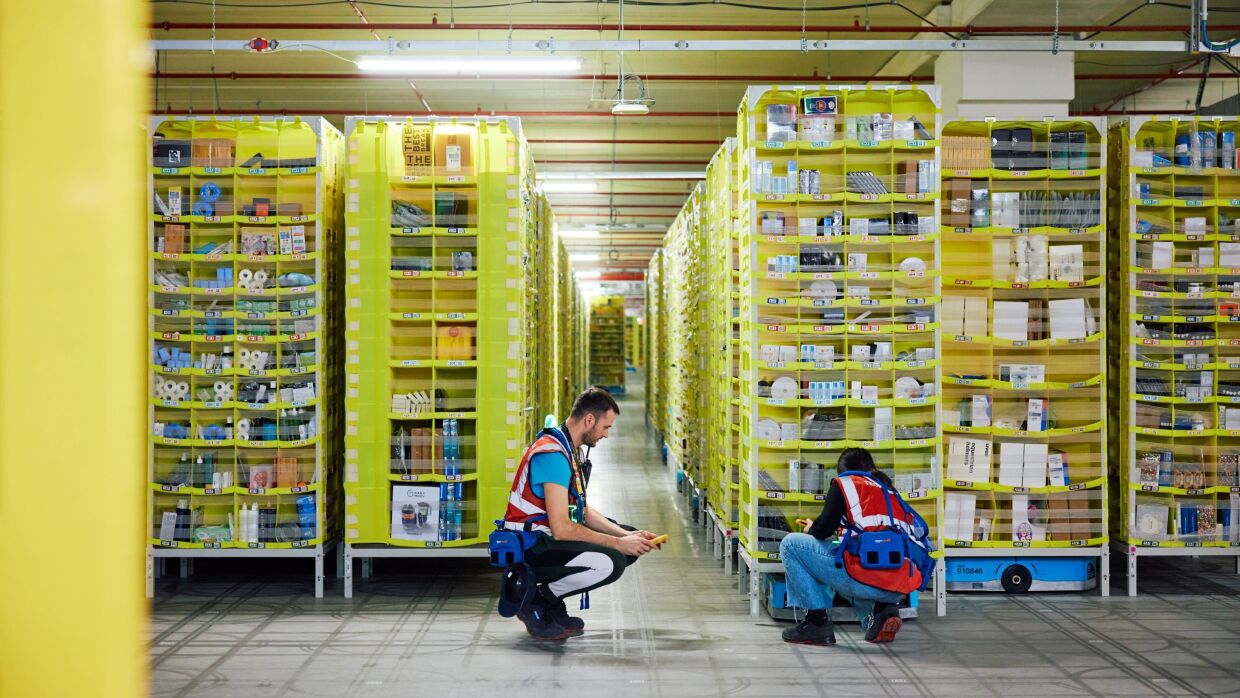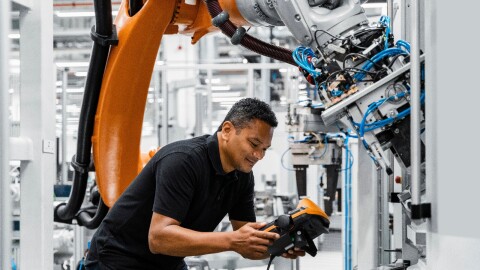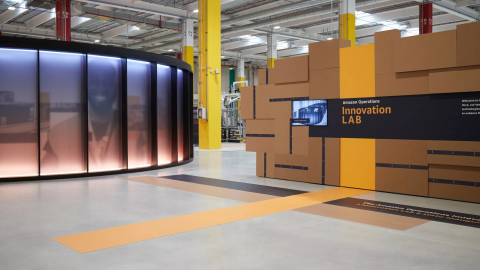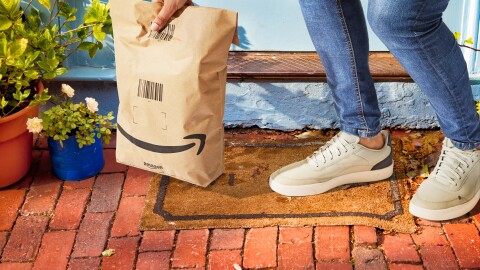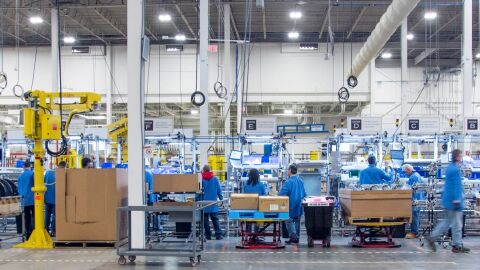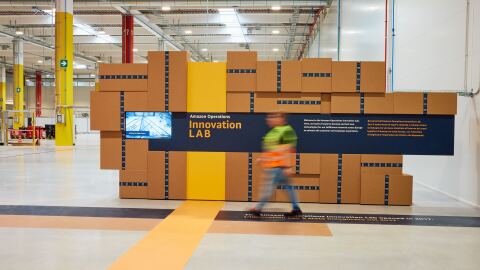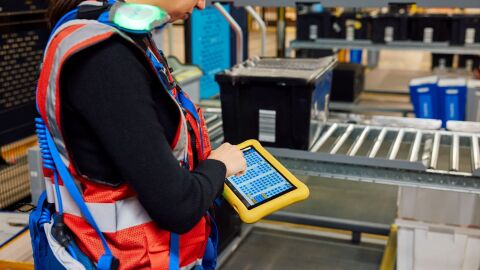Journalists from Spain, the UK, Germany and more attended our first-ever Delivering the Future event in Europe, held at our new Operations Innovation Lab in Vercelli, northern Italy. We offered a look at our new technology, including advanced robotics and AI-powered innovations destined to shape the future of work across our European fulfilment centre (FC) network.
The lab operates as an international centre of innovation for a diverse team of scientists and engineers from all over the world, dedicated to developing and testing technology to better support employees and deliver for customers. It also serves as the European hub for the development of new, innovative sustainable packaging and as a training centre for Amazon Robotics operators. The lab has a visitor centre that will open for public tours in the coming months. These tours will provide customers, students or anyone interested to have a behind-the-scenes look at the advanced technologies and robotics that are creating better ways of working, while providing customers with fast and reliable delivery.
This content is hosted by a third party (www.youtube.com).
To view the content, you need to consent to cookies by selecting Accept all in the popup banner. Or you can go to the site footer, select Cookie Preferences, and then select On under Functional Cookies, Performance Cookies and Advertising Cookies.
Investing in advanced technologies across Amazon’s European fulfilment centre network
Established in 2017, the lab serves as the hub for the global Mechatronics & Sustainable Packaging team. This team was formed in 2019, and by the end of 2024 will have been responsible for the installation of over 1,000 pieces of new technology throughout our European FC network, representing an investment of more than €700 million over the last five years. These cutting-edge technologies encompass item sorters, pallet movers, and automated guide vehicles, actively supporting Amazon employees in FCs across Europe. Robotics and technology play a crucial role in enhancing Amazon’s operations network, while AI enables the company to scale these advancements for our global operation, serving millions of customers worldwide.
With each technology comes different skill requirements, and in many cases the creation of new roles. In fact, over the last decade more than 50,000 jobs have been enhanced across FCs in Europe, from the introduction of new technology which provide a safer working environment and upskilling opportunities.
To learn more about the advanced technology and robotic systems developed at the Amazon Operations Innovation Lab, click here.
Investing in technology, safety and skill training
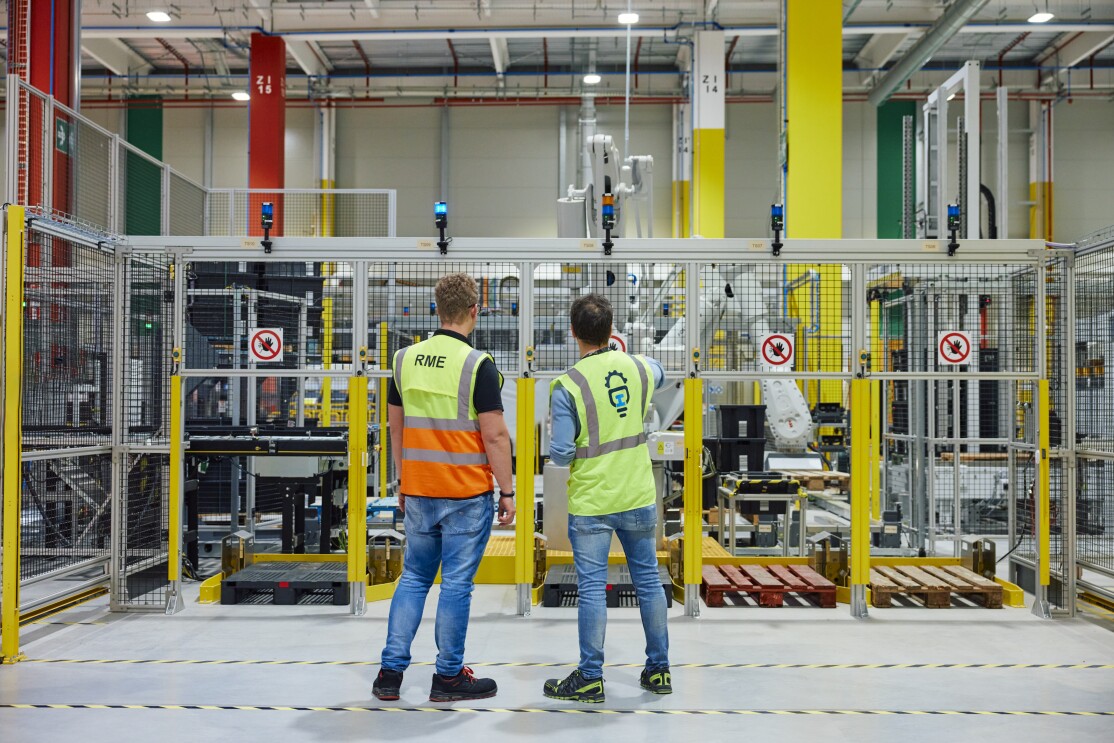
The Amazon Operations Innovation Lab is a great example of where our safety experts, engineers, technicians, and AI scientists work hand-in-hand to develop and test new technology before rolling it out across our network. The technology we deploy on our sites is always focused on serving our team and making our operations safer, and our 2023 safety data for our operations network shows we’re continuing to make year over year progress worldwide.
Since introducing robots within our operations, we’ve also hired hundreds of thousands of employees to work in our facilities and created more than 700 new job categories worldwide. Last October, we announced our partnership with the Massachusetts Institute of Technology (MIT) to study the impact of automation on work. In Vercelli, the researchers shared a first reading on what workers believe to be the impact of technology and automation on health, safety, job security and wages.
To learn more about how we invest in safety and skill training, click here.
Our innovations to reduce packaging
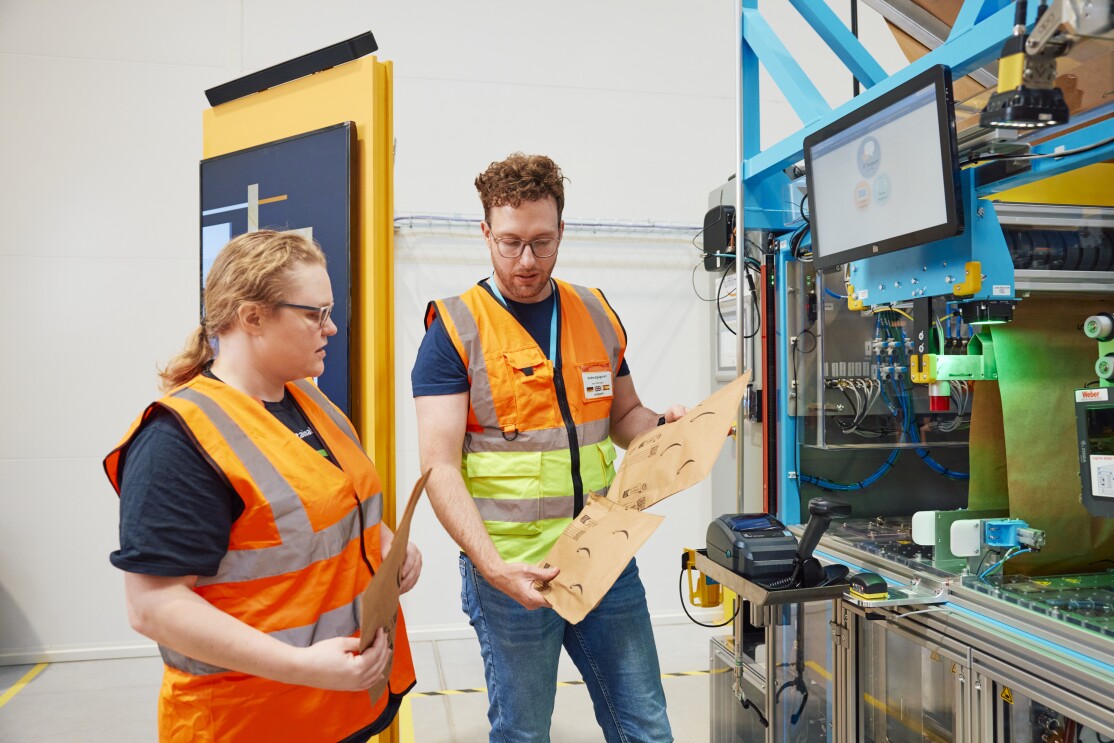
We’re thinking outside the box: instead of our iconic corrugated box with a smile logo, all of our European deliveries come in 100% recyclable delivery packaging, such as paper bags, cardboard envelopes, and boxes—or with no added packaging at all through Amazon’s Ships in Product Packaging programme. In addition to waste reduction, no added packaging can also mean shipments are lighter, which leads to reduced delivery emissions per package, as well as less to recycle. Through the programme, more than 700 million shipments in Europe have already been delivered without additional packaging in the past five years. For items that need additional packaging, we use paper bags and card envelopes which are up to 90% lighter than similar-sized corrugated carboard boxes, require less packaging material, and result in less empty space in each package shipped.
The Operations Innovation Lab is also the place where Amazon tests the latest packaging technologies that reduce environmental impact. It features dedicated equipment such as an automated machine that creates made-to-fit packaging, and an innovative labelling robot that automates label application for packages that can be shipped without Amazon adding delivery packaging.
Learn more about Amazon’s sustainability innovation here.
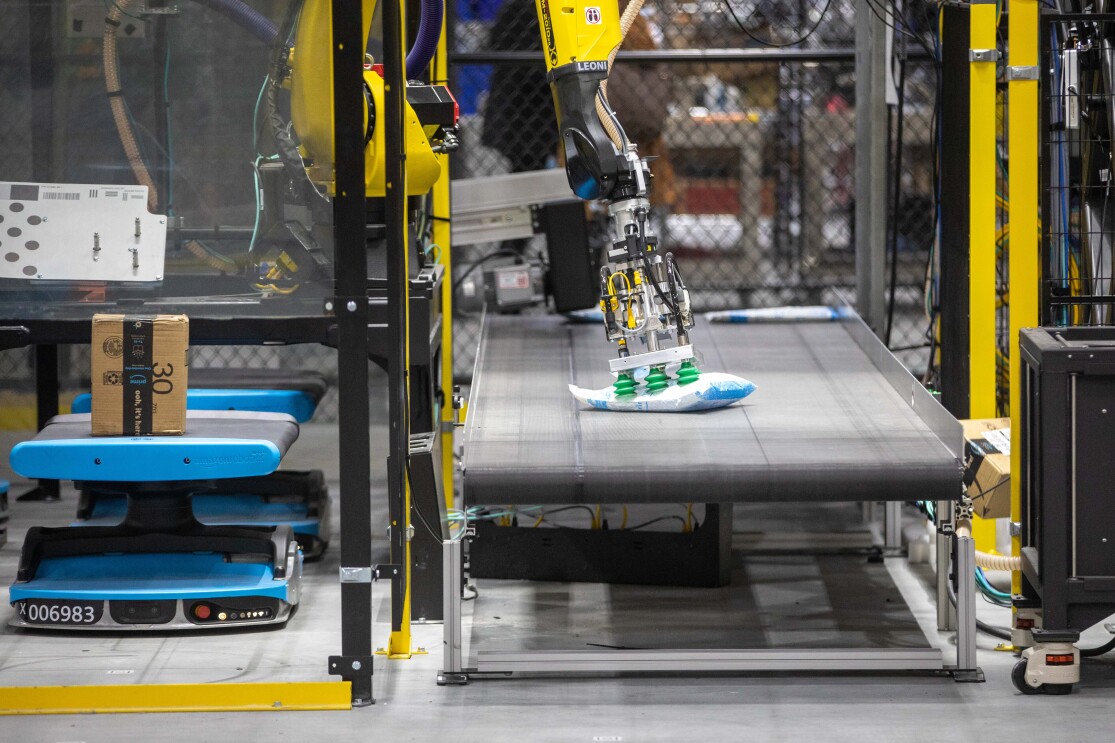
Amazon Industrial Innovation Fund launches Innovation Challenge
In 2022, Amazon launched the Industrial Innovation Fund, a $1 billion venture investment programme that supports emerging technology companies developing solutions in warehouse automation and supply chain innovation.
Since the launch, the Fund has made a dozen investments in promising technologies, such as Instock and Mantis Robotics. Today, the Fund is taking another step forward by launching its first Innovation Challenge, a new global initiative to find, highlight, and drive novel technologies that help to solve the current and real challenges faced in the industry.
During our first European Delivering the Future event today in Vercelli, Italy, we announced the introduction of the Innovation Challenge. Startups working in this space face a number of hurdles beyond just securing capital, including determining product-market fit, finding customers, scaling technology, and evaluating how and where to sell their technology. In addition, companies like Amazon have specific technology requirements which startups may not be fully aware of or understand how to solve without guidance.
To learn more about the Amazon Industrial Innovation Fund and the Innovation Challenge, click here.
Three ways AWS uses AI, Internet of Things (IoT), and machine learning to optimise our FCs
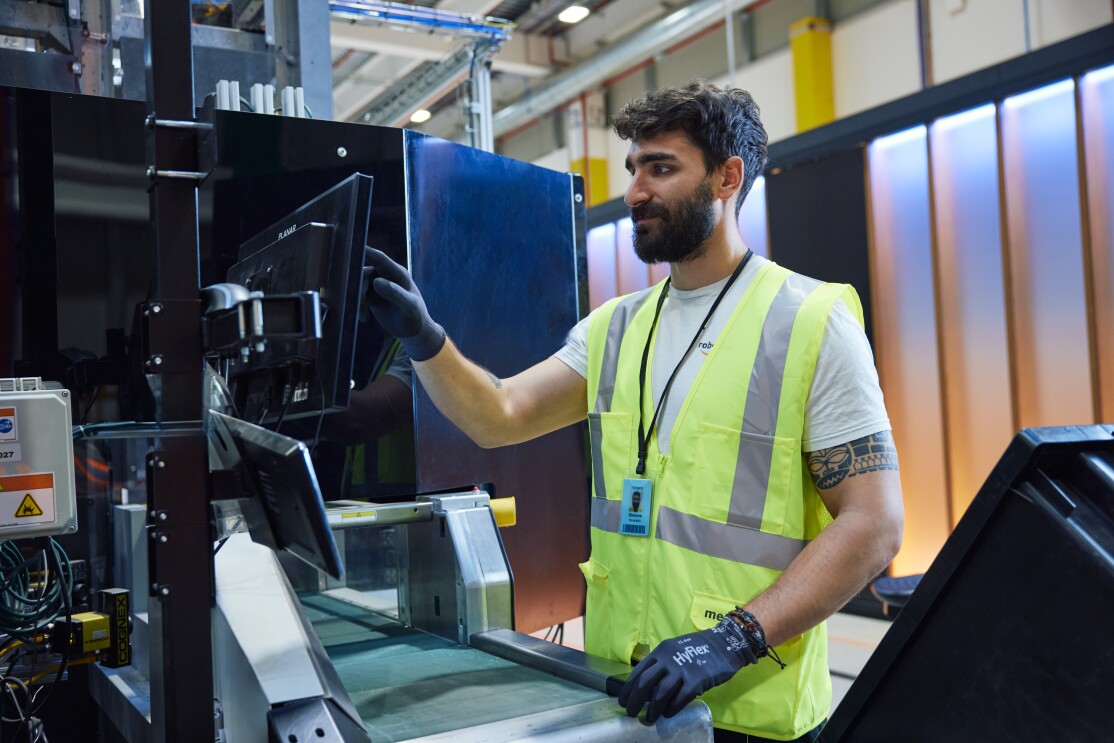
Advanced technologies like AI, machine learning, data analytics, and the Internet of Things (IoT) are transforming the logistics sector, enabling us to deliver faster for consumers, make the workplace safer, and unlock efficiencies across logistics. Amazon Web Services (AWS) provides highly scalable, reliable infrastructure that powers key technologies across our fulfilment process, including Amazon Monitron and Amazon SageMaker.
- Amazon Monitron uses data analytics and machine learning to predict equipment failures to reduce downtime.
- Amazon SageMaker is a scalable platform, enabling data scientists to create and deploy AI and machine learning models.
- Automated Tote Retriever (ATR): One of the key technologies on display and developed at the Operations Innovation Lab, the ATR, is a mechatronic system that automates the retrieval and transport of bins in FCs and runs on the cloud – meaning Amazon can monitor it remotely from anywhere, allowing for intervention, if necessary. These technologies, running on AWS, enable us to optimise the entire fulfilment process, helping us to truly deliver for our customers.
To learn more about how we use advanced technologies, click here.


